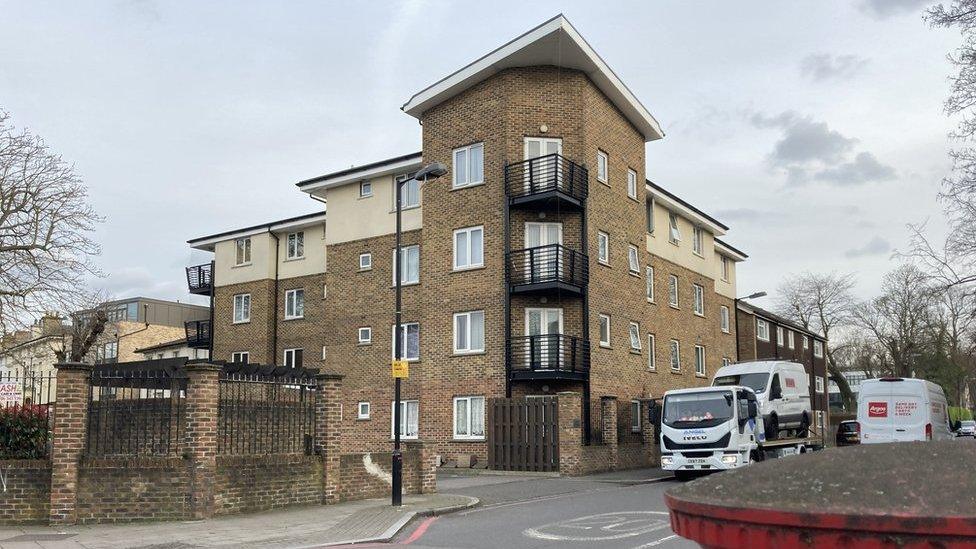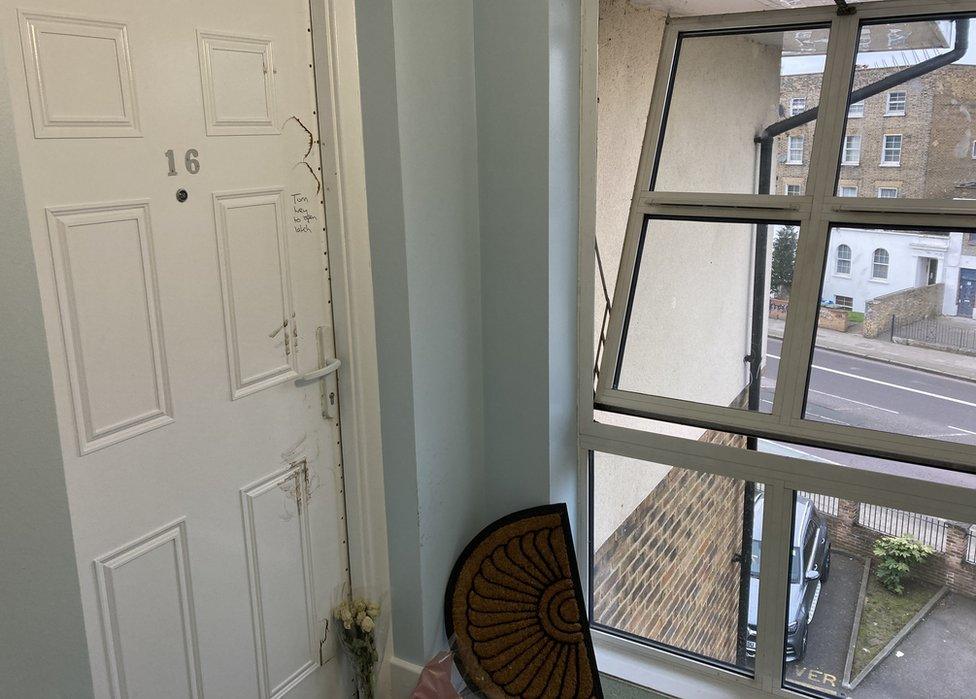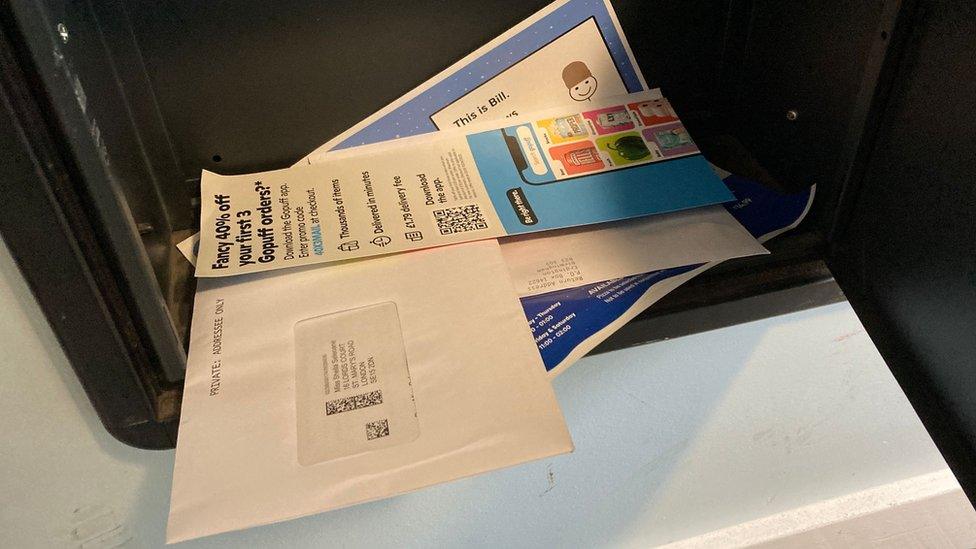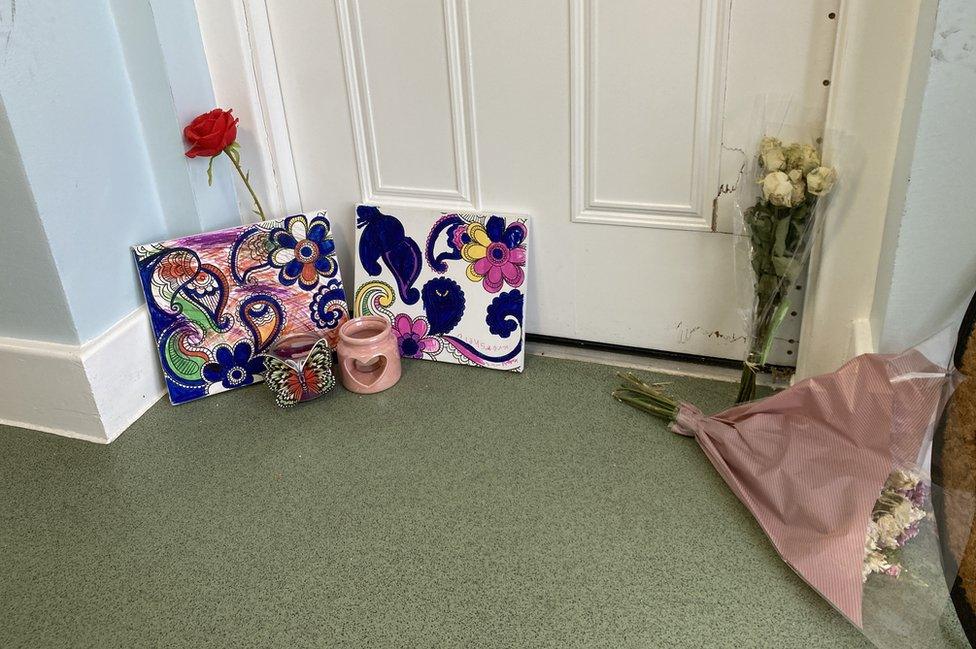Peckham woman lay undiscovered in flat for two years, inquest told
- Published

Sheila Seleoane moved into Lord's Court in 2014
The body of a woman lay undiscovered for two-and-a-half years in her south-east London home despite repeated calls by residents, an inquest heard.
Sheila Seleoane, 58, had to be identified by dental records after she was found in the living room of her flat in Peckham in February.
The inquest was told there had been numerous missed opportunities by both her landlord and the police.
Housing association Peabody has apologised for what happened.
Ms Seleoane was last seen alive during a GP visit in August 2019.
A post-mortem found the cause of her death was unascertained due to the advanced state of decomposition of Ms Seleoane's body.
However, she suffered from Crohn's disease and bowel inflammation, London Inner South Coroner's Court heard.

Nobody had entered Ms Seleoane's flat for years
The inquest was told residents had repeatedly contacted the housing association and police about Ms Seleoane.
She had not paid rent since August 2019 but landlord Peabody cut off her gas supply in June 2020, three months after applying for universal credit to cover her rent.
There were also two police visits to Lord's Court within a week in October 2020, where officers were unable to make contact with the resident.
However, a miscommunication by a Met Police controller mistakenly concluded that Ms Seleoane had been seen alive and well - and this was passed on to Peabody.
That controller retired from the Met last year, but would have been recommended for possible disciplinary action, Det Ch Insp Amanda Mawhinney told the inquest.

Unopened post was found in a mailbox on the ground floor of the building
In February, Ms Seleoane was found by officers. Det Sgt Scott Fisher said he found her lying in the recovery position in the "extremely tidy and well-kept" one bedroom flat.
She was wearing blue pyjamas and a white top, while there was "a brown substance around her body which must be a product of decomposition", he said.
Ashling Fox, deputy chief executive officer for Peabody, admitted they could have done more to check on Ms Seleoane's wellbeing.
She said: "There were opportunities, with hindsight, where dots could have been joined up more quickly at the time.
"In hindsight, it was clear that there had been a sudden change in behaviour. In this case, we recognise that more could have been done."
A clearly emotional Ms Fox added: "Everyone was devastated. I don't think anyone comes to work to do a bad job."
The chief executive officer at the time of incident revealed they were trying to reach nine Peabody tenants who they have had no contact from in the last year.

Flowers were left by well-wishers after her body was found
Concluding the inquest, the coroner said Ms Seleoane had died from "unknown causes".
Delivering an open verdict, Dr Julian Morris added: "Any death is sad. To lie undetected for in all likelihood over two years, is difficult to fathom in 2022."
One Lord's Court resident, who reported maggots in her flat in late summer 2019, told the BBC she was in a state of "shock and disappointment" following the inquest.
She said: "There's no excuse for why Peabody didn't do something before the pandemic.
"There's a lot of things that have been missed that they didn't consider."
Another resident, who first reported a foul stench in September 2019, said Peabody did not take their concerns seriously.
She said: "It doesn't make sense to me that she had no-one. No-one noticed she was missing.
"There are still so many unanswered questions, so many gaps. More could have been done. It's not been good enough."

Follow BBC London on Facebook, external, Twitter , externaland Instagram, external. Send your story ideas to hellobbclondon@bbc.co.uk, external